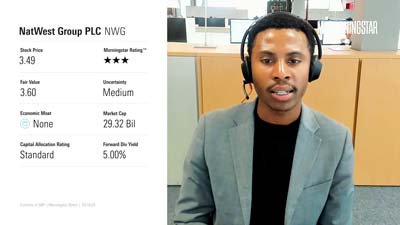
Paying back government furlough cash is a double bonus: it creates goodwill and it sends a signal that a company’s finances are in better health than they might have been. Barratt Developments (BDEV) has joined a remarkably long list of companies taking this path, one that amounts to a good deal more than virtue signalling.
Home completions have fallen by nearly 30% at Barratt, the UK’s largest housebuilder, though perhaps the miracle is that 12,604 homes were completed in the 12 months to the end of June, a period that covered the whole of lockdown. Equally surprising is that average prices actually edged up compared with the previous 12 months.
All sites were fully operating again by the end of June and forward sales have remained strong. The dividend has been suspended but I would be surprised and, as a shareholder, disappointed if some payment is not forthcoming in the current financial year.
The shares lost more than half their value in the stockmarket collapse, dropping from 878p to 365p, and the recovery has been anaemic. At 522p they are not overvalued despite the uncertainties hanging over the economy. There are still more prospective housebuyers than there are homes available.
Nor is Barratt alone in this scenario. The day after its trading update, Vistry (VTY), which I also hold, and Persimmon (PSN) and MJ Gleeson (GLE), which I do not, reported that although sales had inevitably fallen during the lockdown when only virtual viewings were possible, house prices had actually increased and so subsequently have forward order books. Their shares have likewise failed so far to recover fully and do not reflect current prospects.
FirstGroup has Lost its Way
Investors must search for what crumbs of comfort they can scrounge at the moment but there are precious few to be found at train, bus and coach operator FirstGroup (FGP).
For a start, it has run up its third consecutive annual loss. Once again the reason is a one-off charge, this time £187 million for the perennially troubled Greyhound coaches and £141 million on an insurance matter, also in the US. Investors should normally look at the underlying figures but when one-off charges keep recurring, one has to feel that there is something wrong with the whole business premise.
The sally across the Atlantic has been a disaster, loading the group up with unsustainable debt that is not being paid off by profits from the acquisitions. FirstGroup owes a net £33.3 billion. The US operations are up for sale and the proceeds just might wipe out the debt. The trouble is that any potential buyers know that FirstGroup is keen to get out, so it will be difficult to drive a hard bargain. In any case, no one seems in any rush to form a queue.
Greyhound struggled under its previous owner and looks unlikely to ever turn the corner; US school buses have been disrupted by coronavirus; ditto UK buses; and UK trains have been effectively nationalised for the time being.
It is hard to see where FirstGroup can go from here, except downhill.
Software Surge
Not many companies can say that revenue was 6% higher in the four months to the end of June compared with the same period last year but that feat was achieved by First Derivatives (FDP), the Aim-quoted technology specialist, even though clients have deferred some new projects. The improvement has come from recurring business as new software sales are slower to come through.
The shares have recovered quite well after dropping from 3,050p to 1,750p and now trade around 2,600p. The yield is admittedly only 1% but at least there is still a dividend, albeit a reduced one. If you are happy to invest in Aim stocks, First Directive is worth a look.





























